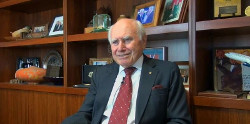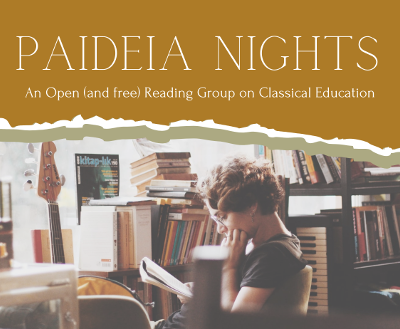Almost every form of distance communication today is done online. Even this article, advocating writing to newspapers and your local MPs to encourage discussion around classical education, is appearing on an online blog! (And, realistically, our letters aren’t likely to be handwritten but rather emails…)
Still, through whatever medium you do it, just do it: write letters to newspapers and MPs. Perhaps the main reason why the liberal arts do not have a greater presence in Australia’s educational landscape is because people are ignorant of it as a viable – and venerable – alternative. We need to make the public more aware, or else our movement will remain a fringe one. If major newspapers and pollies receive dozens (perhaps hundreds) of letters to this effect, they will begin to become curious and we know how dangerous a little bit of curiosity can be!
Below is some advice on how to write to newspapers and Members of Parliament, in addition sample letters and contact information. If you are interested in a letter writing campaign, please get in touch with ACES and we can soon start something strong! Contact:
Letters to newspapers:
- Keep it short (200 words or less).
- Keep it direct (stick to salient points with evidence).
- Keep it informative (you’re likely reaching readers who have never heard of or experienced classical education).
- Keep it positive (noting problems is important but be sure to highlight how classical education is a viable alternative).
- Keep it persuasive (rhetorical techniques and flair are perfect for these kinds of letters).
Example:
One step back, two steps forward
Our current educational crisis is not unique to Australia. Although we are showing a clear decline in standards according to PISA and classroom discipline is increasingly driving teachers out of the profession, many Western countries are experiencing similar issues.
One solution has recently emerged in the United States (or more correctly, has re-emerged): classical education. It advocates a way forward by stepping back into the past; specifically, studying the liberal arts integrated with a purposeful inculcation of virtues, civics and, in many settings, religious faith and humanist principles.
The traditional bent of classical education is in its pedagogy, first and foremost, not in its subject matter, although Greco-Roman authors feature highly as part of the “great books” of human literature. As an end goal seeking to develop mature, well-rounded and critically thinking young people, it has proven quite successful (one recent study: “Good Soil” highlights these positive outcomes).
As a movement, classical education is becoming popular in Australia too, with several schools having lately sprung up in Queensland and New South Wales, following on the back of Campion College (established 2006). Governments, academics and parents would do well to look into this alternative approach to education.
Jonathan Hili
Secretary of the Australian Classical Education Society Inc.
Letters to Members of Parliament::
- Address the MP by his or her proper title. In the address block, use: “The Honourable (First Name) (Surname) MP, Minister for (Portfolio)”; for the salutation use: “Dear Minister (Surname)”.
- Try to limit your letter to no more than one page (500 words).
- Personalise the letter and why this issue is significant to you (as a parent, student, teacher, etc.).
- As with letters, raise the problems with contemporary education in Australia but don’t dwell on them (politicians are very aware of them!).
- Emphasise classical education as both offering a solution and an alternative form of education (parental and student choice).
- Provide pertinent examples of classical education at work, suggesting a way forward. Several studies exist (for example, the “Good Soil” report), as well as model schools in Australia (such as Campion College). Obviously, the US will have more data to draw from but keep it as local as you can.
- Request further communication or a meeting. If you don’t feel confident doing so, politely recommend the MP contacts ACES or another classical education organisation/individual in Australia.
Example:
Dear Minister Jones,
Thank you for taking the time to consider my letter. I am an Australian high school teacher with over twenty years of experience and the Secretary of the Australian Classical Education Society Inc. As you can imagine, the education of my students and next generation of Australians is very important to me...
We are all very aware of the educational problems faced in this country, particularly around the issues of outcomes and discipline. PISA has recently… Furthermore, many parents feel exasperated by the disciplinary issues and these are increasingly driving teachers out of the profession, as one recent report states…
However, I have not written principally to dwell on such problems but to propose a solution; one solution among many but I think a significant one. It is an alternative approach to education known as classical education... Some features of this pedagogy are…
This form of learning has proven to yield very positive results. In the United States… However, in Australia we are seeing independent classical schools opening their doors every year, for instance, St John of Kronstadt and St John Henry Newman Academy in Queensland, Augustine Academy and the venerable classical institution Campion College in New South Wales...
Classical education promises to not only provide a solution to the educational crisis we face but also an alternative to parents and educators. For example...
I appreciate your time in reading this letter and encourage you to look into classical education…
Should you wish to discuss this further or be provided with more information and resources, please do not hesitate to contact me.
Yours sincerely,
Jonathan Hili
Secretary, Australian Classical Education Society Inc.
Contacts:
| Member of Parliament | Address | Phone Number | |
|---|---|---|---|
|
The Hon Jason Clare MP, Federal Minister for Education |
PO Box 153 |
(02) 9790 2466 |
|
|
Senator the Hon Dr Jess Walsh, Federal Minister for Early Childhood Education |
PO Box 233 |
(03) 9381 5448 |
|
|
The Hon Julian Hill MP, Federal Assistant Minister for International Education |
45 Robinson Street |
(03) 9791 7770 |
|
|
The Hon Ben Carroll, VIC Minister for Education |
PO Box 554 |
(03) 9379 5879 |
|
|
The Hon Prue Car, Deputy Premier, NSW Minister for Education and Early Learning |
GPO Box 5341 |
(02) 7225 6010 | https://www.nsw.gov.au/nsw-government/ministers/deputy-premier |
|
The Hon Blair Boyer, SA Minister for Education, Training and Skills |
GPO Box 1563 Adelaide, SA, 5001 |
(08) 8226 1205 | |
|
The Hon John-Paul Langbroek, QLD Minister for Education and the Arts |
PO Box 15033 City East, QLD, 4002 |
(07) 3719 7270 | |
|
The Hon Joanne Palmer MLC, TAS Minister for Education |
15 Murray Street Hobart, TAS, 7000 |
(03) 6165 9420 |
|
| The Hon Sabine Winton, WA
Minister for Education |
PO Box 345 Wanneroo WA 6946 |
(08) 6552 6100 |






